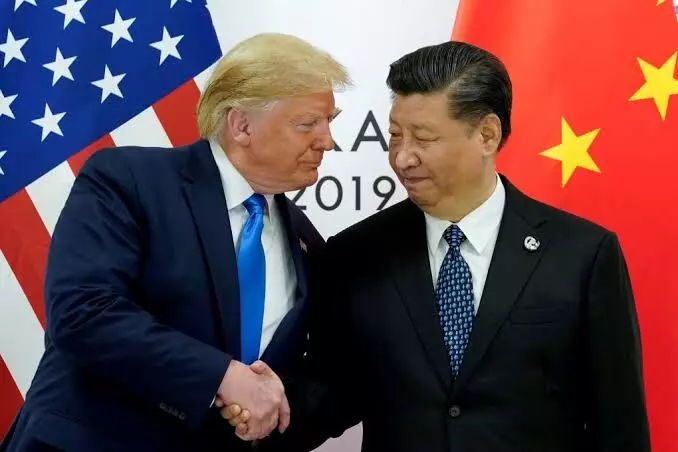US, China reach deal to slash reciprocal tariffs by 115%

Geneva: US and Chinese officials said Monday they had reached a deal to roll back most of their recent tariffs and call a 90-day truce in their trade war for more talks on resolving their trade disputes. Stock markets rose sharply as the globe's two major economic powers took a step back from a clash that has unsettled the global economy. US Trade Representative Jamieson Greer said the US agreed to drop its 145% tariff rate on Chinese goods by 115 percentage points to 30%, while China agreed to lower its rate on US goods by the same amount to 10%. Greer and Treasury Secretary Scott Bessent announced the tariff reductions at a news conference in Geneva. The two officials struck a positive tone as they said the two sides had set up consultations to continue discussing their trade issues.
Bessent said at the news briefing after two days of talks that the high tariff levels would have amounted to a complete blockage of each sides goods, an outcome neither side wants. “The consensus from both delegations this weekend is neither side wants a decoupling,” Bessent said. “And what had occurred with these very high tariff ... was an embargo, the equivalent of an embargo. And neither side wants that. We do want trade. We want more balanced trade. And I think that both sides are committed to achieving that." Trump last month raised US tariffs on China to a combined 145% and China retaliated by hitting American imports with a 125% levy. Tariffs that high essentially amount to the two countries boycotting each other's products, disrupting trade that last year topped $660 billion. The announcement by the US and China sent shares surging, with US futures jumping more than 2%. Hong Kong's Hang Seng index surged nearly 3% and benchmarks in Germany and France were both up 0.7%. The Trump administration has imposed tariffs on countries worldwide, but its fight with China has been the most intense. Trump's import taxes on goods from China include a 20% charge meant to pressure Beijing into doing more to stop the flow of the synthetic opioid fentanyl into the United States. The remaining 125% involve a dispute dating back to Trump's first term and comes atop tariffs he levied on China then, which means the total tariffs on some Chinese goods can exceed 145%..



